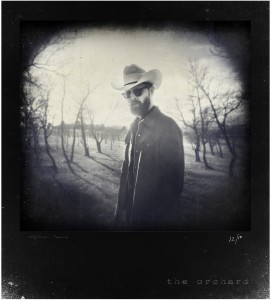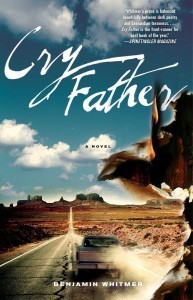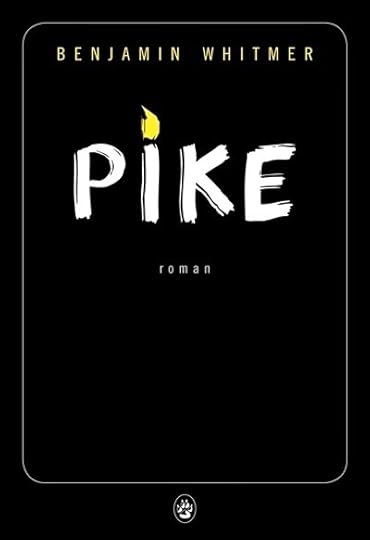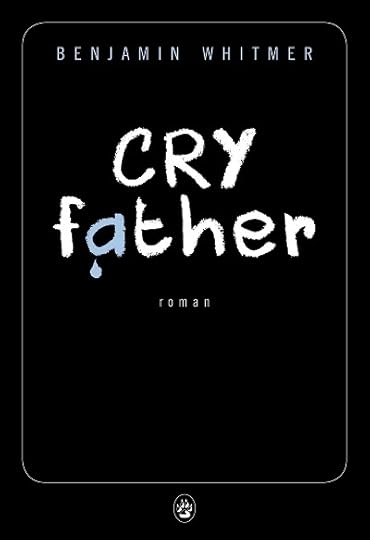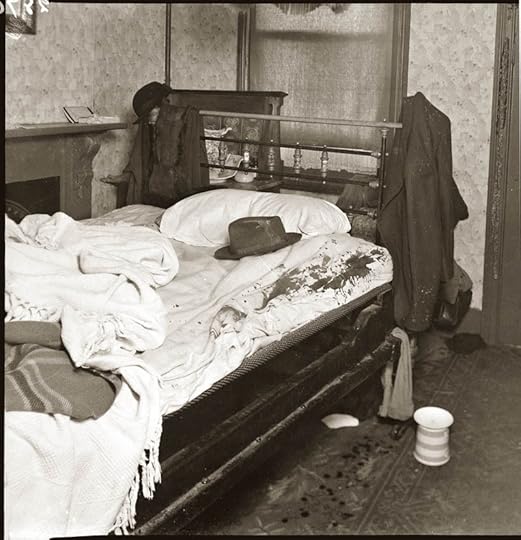Benjamin Whitmer's Blog, page 7
March 11, 2015
Slim Cessna’s Auto Club
Sometimes I get to do really cool shit, just because. Like recently I was asked to write a new bio for my favorite band, Slim Cessna’s Auto Club. So I did. You can find it on their brand new website. Or below, but you should go to their brand new website anyways. (Photo above by Gary Isaacs.)
There comes a moment in every Slim Cessna’s Auto Club show when you realize you’re seeing something you’ll never see anywhere else. It’s Slim Cessna in a white cowboy hat and beard, the lights haloing his ungainly frame, horn-rimmed glasses flashing through the smoke. He’s trading lyrics and insults with Munly Munly, gaunt and strange, dressed in a shade of black particular to preachers and burnt down barns. Their voices rise and converge in the kind of exquisite harmony usually found in Sacred Harp congregations, and then the band cuts loose, the best live band in the world, and the two men are doing battle, playing out some cathartic war between good and evil on stage. Or trading dance steps. You can’t tell.
I said the best live band in the world, and I ain’t the only one. No Depression and Spin Magazine have said the same. This is a band that’s held its own onstage with everybody from Johnny Cash to the Dresden Dolls. But you listen to the recording of “That Fierce Cow is Common Sense in a Country Dress,” and it’ll take you just about four minutes before you realize you’re listening to the best band in the world, period. It’s Lord Dwight Pentacost leading the lunatic rapture on his Jesus and Mary double-necked guitar; Rebecca Vera playing pedal steel so sublimely that I swear to God you can see the ghost of Ralph Mooney circling the stage; and, holding down the rhythm section like they have with each other since seventh grade, The Peeler on drums and Danny Pants on the doghouse bass, driving the band, making you lose your damn mind.
They’ve been making music for over twenty years, and there is, quite simply, nothing else like it. It’s gospel music, is what I’ve decided. Gospel music for a blasted world. A world straining and bursting in constant pain, but one that can’t help but overspill with joy – even knowing better. And the songs, Jesus. Songs about Colorado Indian hater John Chivington, alien abductions, patricide, a man born without a spine. This is the wild, bloody and weird America of Harry Crews, the only America worth a damn. It’s what Flannery O’Connor was trying to say when she wrote of dark romances and the grotesque. If you’ve got a heart, these songs’ll break it, and if you’ve got any laughter left in you, they’ll beat it out of you until you cry.
I probably can’t improve on what Jello Biafra said about Slim Cessna’s Auto Club, that they’re “the country band that plays the bar at the end of the world.” But I like to think that as long as they’re around, they can still save us from that end. Or at least from what currently passes as country music.
– Benjamin Whitmer, author of Pike and Cry Father, and co-author with Charlie Louvin of Satan is Real: The Ballad of the Louvin Brothers
March 9, 2015
Cry Father Trade Paperback Goodreads Giveaway
March 6, 2015
The World’s Unlikeliest Francophile
Because nobody’s ever accused me of being particularly worldly, I always call myself the world’s unlikeliest Francophile. And here’s a good example of why: My French publisher has started a new noir imprint, and has re-released Pike as book zero with this beautiful new cover:
And, even more exciting, Cry Father will hit France on March 26 as a member of the new lineup.
But here’s the best part. I will actually be in France for the release. As well as to attend Quais du Polar and hopefully meet some of the French book folks that have been selling the hell out of Pike. Not to mention the genius head of my publisher, my Captain Oliver Gallmeister, and my translator, Jacques Mailhos — who, as I always say, is responsible for most of said success.
I can’t read French, so I really have no idea what I’ll be doing or where I’ll be going. But if you do read French, you can find details here. (And then email me and let me know.)
March 3, 2015
Dubious Advice Given in my Workshops
To be honest, I distrust most general writing advice. So I give a lot of bad advice in my workshops. I just hope that even though it may be bad, it’s useful to think about. Here’s some of my worst:
I hope you get the chance to watch your entire life disintegrate in one day. There’s no greater gift you can give yourself as a writer.
Cliché will make you a Nazi.
Take walks where you shouldn’t go. Try to find somewhere that you can get hurt for just being who you are.
Plots are for gardeners.
Writing a novel means carrying on a conversation with every other book you’ve ever read. A conversation you can’t share, and wouldn’t if you could. Have a divorce lawyer on speed dial.
Steal everything you can get away with.
Avoid people with moderate opinions. They’re useless to you.
It’s always fun to see if you can sabotage your relationship with your reader.
Hallucinogenic drugs may not make you a better writer, but they can’t hurt.
One good way to inform your understanding of consequences is to get a concealed carry permit. And use it.
Cultivate your prejudices. Nourish them.
There is nothing, and I mean nothing, to be learned while shopping at Whole Foods. There is much to be learned at Walmart. Ignore the politics-of-personal-purity bullshit and shop accordingly.
Read several books at once. It’s a kind of cross-contamination not too far off from the writing of book.
I don’t buy that shit about an author having to suffer for her art. But the desire to be an author is a damn good way to get there anyways.
Ignore as much of the business side of this as you can. If you’re doing it to make money, you’re doing it wrong.
I never met anybody who changed much in life, and I distrust authors who make their characters do it in fiction.
Don’t read to richen your life, that’s nonsense. Live a life to richen your reading.
Everybody is more interesting with a gun to their head.
Every possible book about redemption and closure has already been written and has an Oprah Book Club seal.
Get punched in the face now and then to note your lack of interiority.
Ignore all writing advice not particular to your project.
February 28, 2015
Armenia
M.A. Littler has a new film project starting, and as much as I like the rest of his work, this looks like something truly special. Here’s the link to the crowdfunding site.
Speaking of Littler, Hard Soil is now available for download and on DVD here.
This is what I wrote — was proud to write — as part of the Nashville Film Festival application for it.
There are more definitions of folk music than there are musicians. And with the exception of maybe punk rock aficionados and Marxists, there’s no larger pool of purists and amateur historians. The battles over authenticity can be as fierce as any sports riot, and only about half as intelligible. It was with that in mind that I came to M.A. Littler’s HARD SOIL, and I’ll admit to being a little scared. For him, and for me.
I should have known better. M.A. Littler is too damn smart to give us something we can just as well get in a Wikipedia entry. He leaves the definitions and the proselytizing to others and instead gives us a group of likeminded musicians and fans coming together to experience songs. Songs about tough living, joy, family, and community. They may not be your songs, and they may not fit your definition of folk, but after watching HARD SOIL, I defy anyone to call them anything else. They mean too much to the people singing them, and to the people listening.
Woody Guthrie famously said that he hates a song that makes you feel like you’re born to lose, that makes fun of you for your bad luck or your hard traveling. I’m with him on that, which is why I don’t listen to much out of Nashville or LA these days. But if you’re the kind who prefers murder ballads over party anthems, who believes that it takes lonesomeness and blood to make good music, there’s a place for you a little further afield. In HARD SOIL, M.A. Littler gives us an exquisite tour of the space where punk rock and country music meet. There ain’t no Nudie suits and there ain’t no tour buses, but there is blind persistence in the regenerative power of art, and the community that arises from it. “The lost can’t bullshit the lost,” one singer says. Amen, brother.
February 27, 2015
Cry Father Paperback
Coming May 15. All those links on the sidebar can be used to preorder, if you wanna do so. The cover reminds me of this song. Which could be just because I had it on repeat about a thousand times while writing the book.
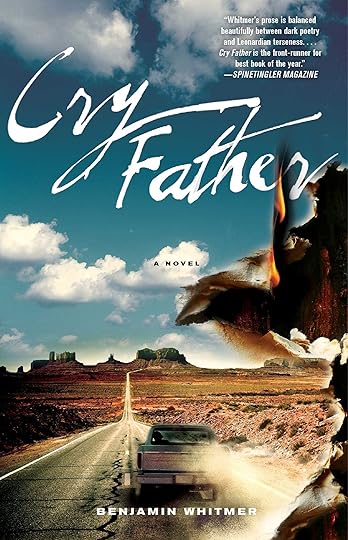
February 26, 2015
Guns, Books, Etc.
“If Ken Bruen did not exist, only the devil could have invented Jack Taylor.“
Some kind soul added a quote from Pike to Goodreads. I don’t know why I am so happy about that.
Too dumb for New York City, too ugly for LA.
“So I need to write about the land. About the Lake. About the emptiness of the Dakota prairies. Because while it’s nice to evoke that sense of those places in my readers, that’s not why I’m doing it. Fuck no. I’m writing about them to evoke that sense of those places in myself.”
25 vintage police record photographs from New South Wales.
The tactical candle holder.
“The morning after a big awards show like this, there is always a very shallow debate over whether it is ‘good’ or ‘bad’ for big celebrities to speak out about political issues on stage at the big awards show. This is not the important issue. I guess on the grand spectrum of ‘good’ to ‘bad’ in this world of ours, ‘bad’ would be ‘The Academy Awards are held and no one speaks out about politics because it is all about opulence,’ and ‘good’ would be ‘The Academy Awards are not held.’ If the Academy Awards are going to be held, might as well use them to some small societal benefit, by robbing the people’s houses.”
February 25, 2015
Schopenhauer, Cioran, Ligotti, Pizzolatto, Etc.
I’ve been talking more and more about Schopenhauer, Cioran, and Ligotti. Everybody who knows me is getting real sick of it, and the poor Lighthouse folks taking my workshops probably want to claw their ears out at this point. But I can’t help it.
I began reading Schopenhauer several years back as a way to get to Moby Dick. Cioran, I started reading seriously for a review I wrote of Jeffrey DeShell’s The Trouble with Being Born. I’m a more recent convert to Thomas Ligotti, thanks to all the fuss that was made about Nic Pizzolatto’s supposed plagiarism of him for True Detective.
And the more I read of these guys, the more I think all that plagiarism nonsense was exactly that: Nonsense. There were things I disagreed with in his conversation with them in True Detective, especially in the ending, but to call Pizzolatto a plagiarist, you have to say the same about Melville.
Or, as I just realized upon rewatching The Sunset Limited recently, Cormac McCarthy:
Novelists engage with ideas, at least the interesting ones. And as McCarthy once said, “The ugly fact is books are made out of books, the novel depends for its life on the novels that have been written.”
The question isn’t whether or not Pizzalatto used others’ ideas in his own work, but whether he dealt with those ideas fairly and honestly, or used them as strawmen. I need to rewatch True Detective, because I’m still not sure. But the plagiarism argument is stupid.
February 23, 2015
Quote
From what I’ve read, it seems to me that a lot of noir is just about vantage point. I’ve said this over and over again, but in most kinds of fiction — literary and crime — the protagonist is working to heal some rift in society, or, in microcosm, the family; in noir, however, society itself is the rift. You can’t heal it; it’s that force working against you that you can’t really understand. That’s the atmosphere at play.
Which, y’know, seems to me to be a pretty natural way to read the world. But maybe I should be writing horror.
This from Thomas Ligotti’s The Conspiracy Against the Human Race: A Contrivance of Horror.
Atmosphere is created by anything that suggests an ominous state of affairs beyond what our senses perceive and our minds can fully comprehend. It is the signature motif that Schopenhauer made discernible in pessimism —that behind the scenes of life there is something pernicious that makes a nightmare of our world.

